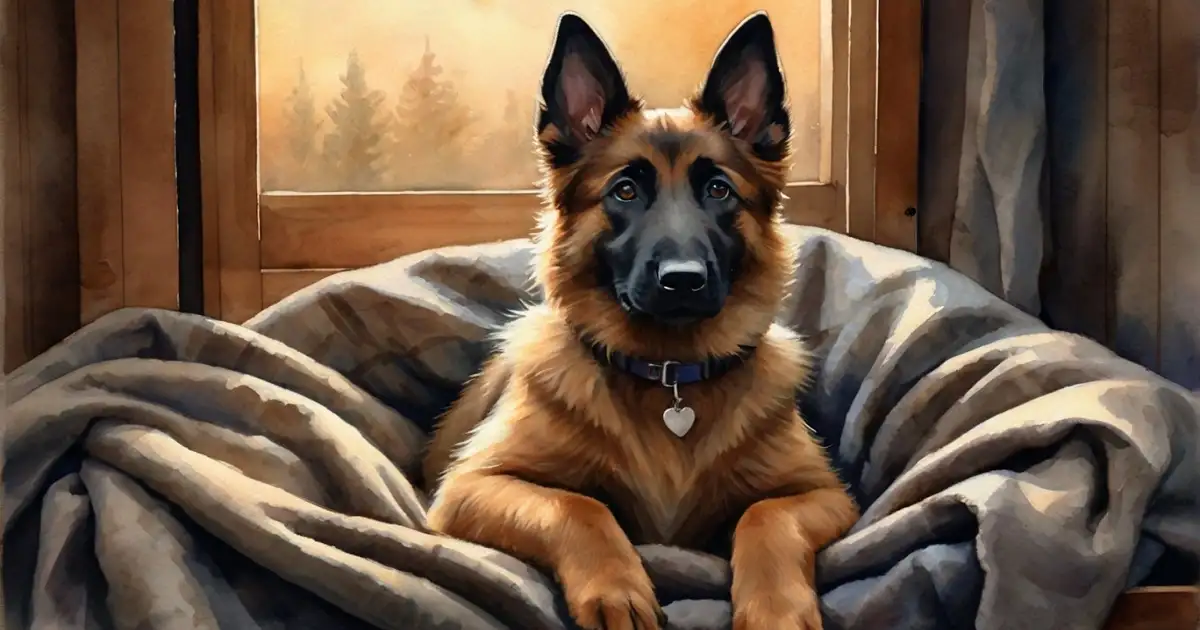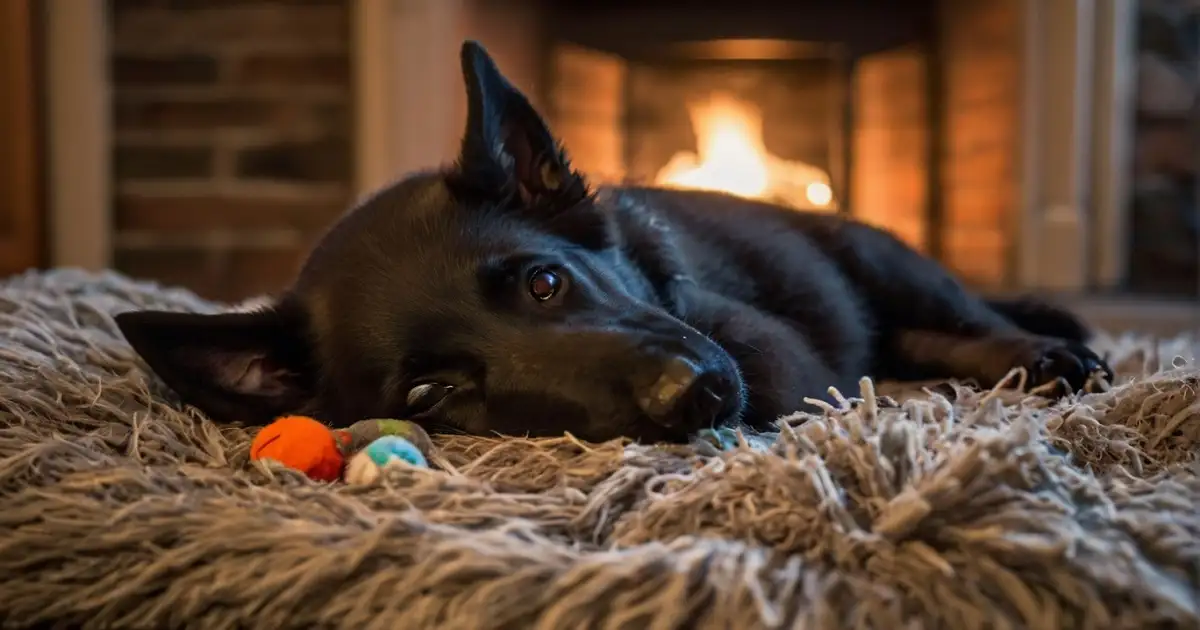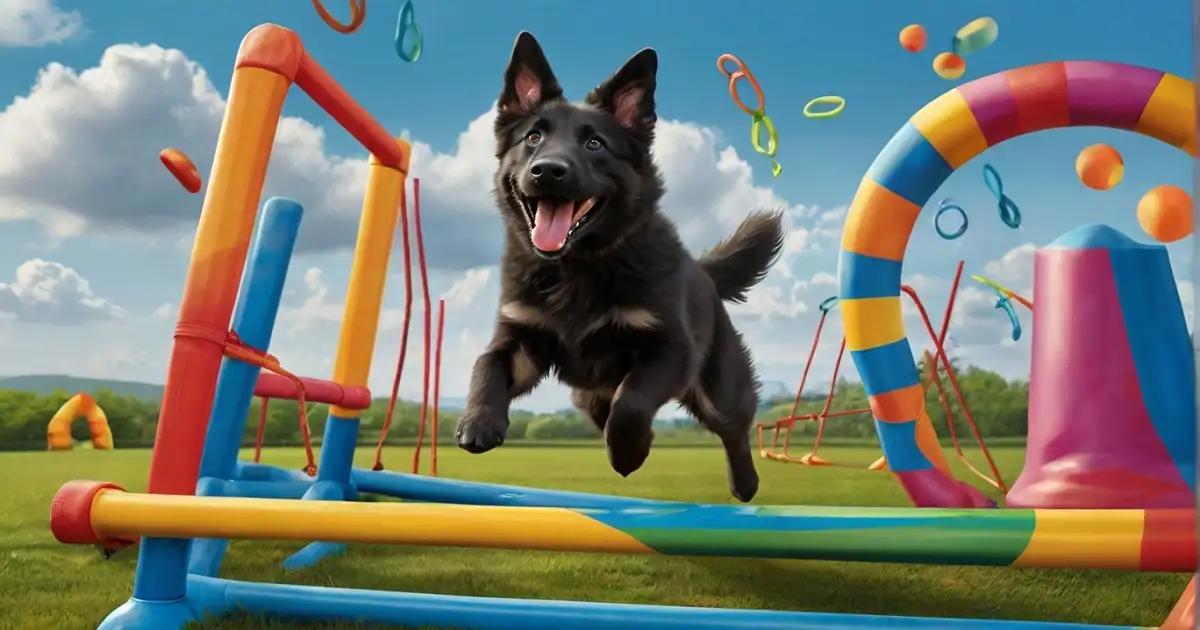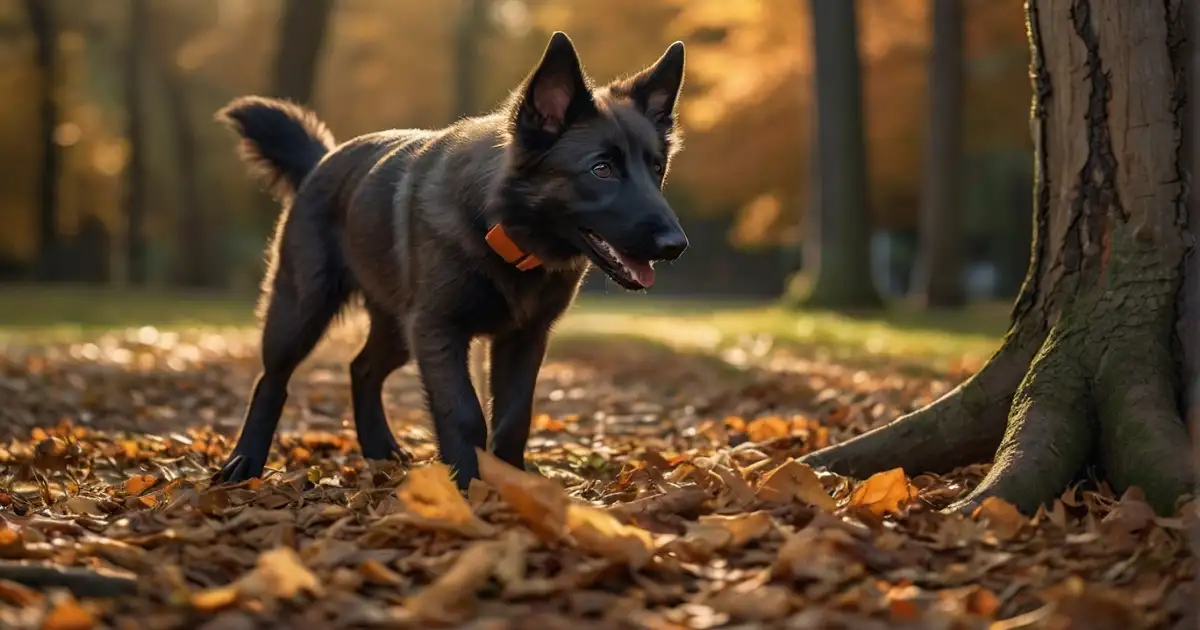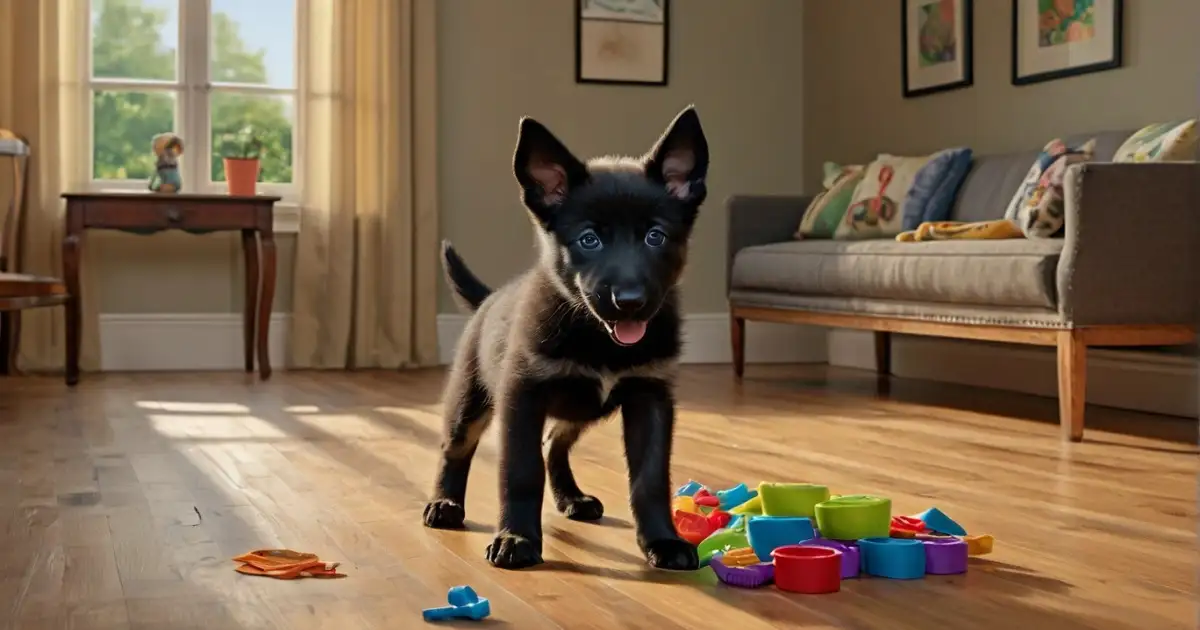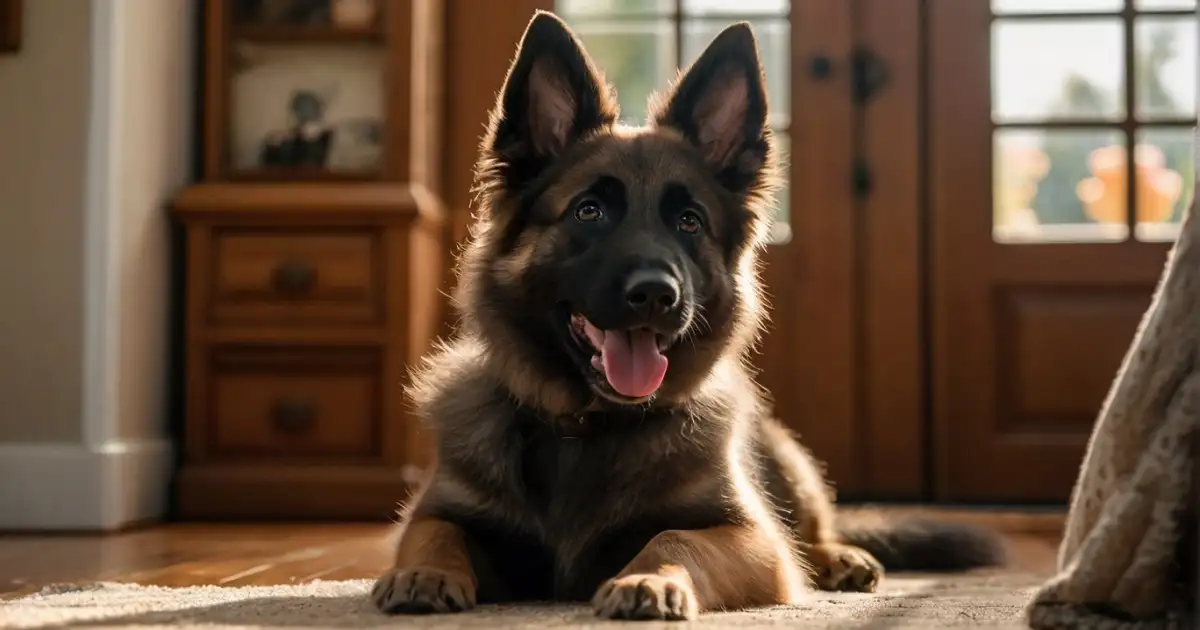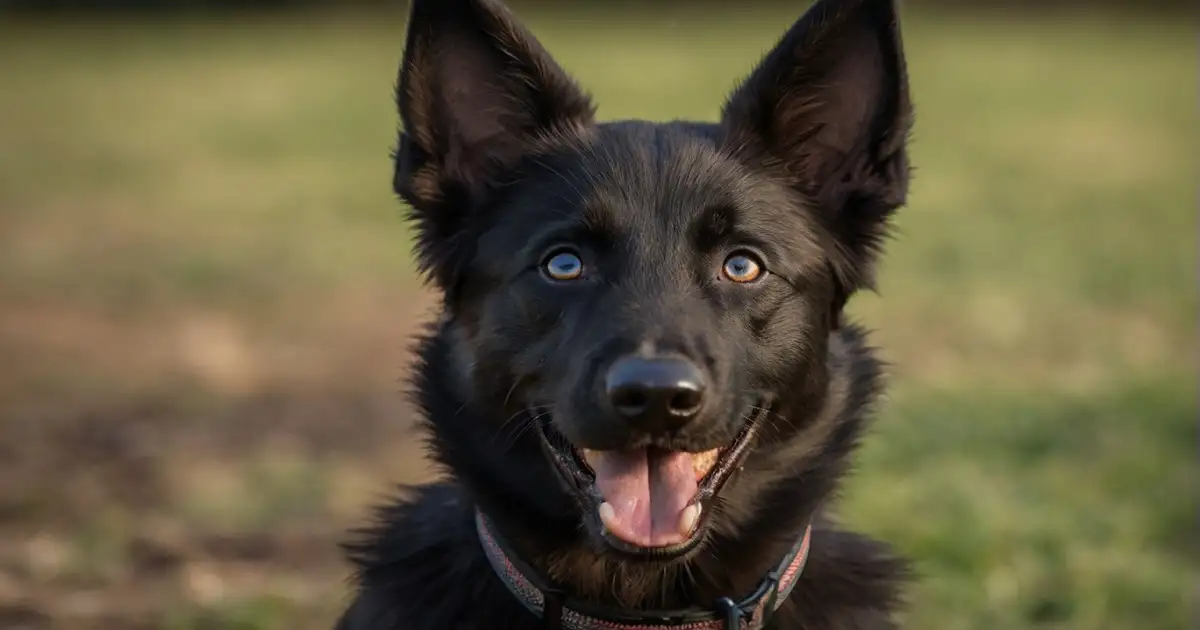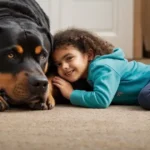Welcome to the exciting world of Belgian Shepherd puppy training! Proper training and socialization during these formative months are essential for raising a happy, confident, and well-adjusted Belgian Shepherd.
This comprehensive guide will provide the key techniques, strategies, and insights to start your Belgian Shepherd puppy off on the right paw. We’ll cover everything from preparing your home and establishing a training routine to housetraining, basic commands, leash training, behavioral issues, exercise needs, and much more.
Whether you’re a first-time Belgian Shepherd owner or an experienced dog lover, use this article as your trusty handbook for mastering Belgian Shepherd puppy training and setting your furry friend up for success!
Getting Started with Belgian Shepherd Puppy Training
Bringing home a Belgian Shepherd puppy is an exciting time. Still, it also marks the beginning of an important training journey. As an experienced Belgian Shepherd owner and trainer, I highly recommend preparing before your puppy arrives. Rushing into Belgian Shepherd puppy training can cause unwanted stress for you and your new furry family member.
Preparing Your Home for a New Belgian Shepherd Puppy
The key to setting your puppy up for success is starting their training on the right paw. Belgian Shepherds are an active and intelligent breed that require proper mental and physical stimulation. Here are a few tips to prep your home for their arrival:
- Puppy-proof your house by removing any potential hazards and securing electrical wires. Belgian Shepherd puppies love to chew and explore!
- Designate a special area as your puppy’s corner with a crate, bedding, toys, and water/food bowls. It will be their personal safe space.
- Stock up on high-quality puppy food specially formulated for large breeds like the Belgian Shepherd. Feed on a consistent schedule.
- Have potty training essentials ready, like puppy pads, enzyme cleaner for accidents, and treats for rewards.
- Child-proof latches on cabinets can prevent unwanted chewing and injuries.
Introducing Your Puppy to Their New Environment
Once you bring your Belgian Shepherd puppy home, let them gradually explore their new environment.
Keep initial introductions calm and positive. Some tips:
- Initially, confine them to a single room or their designated puppy corner.
- Introduce family members slowly under supervision.
- Set up confinement areas like the crate so they have a secure space to retreat to if overwhelmed.
- Carry them outside to the desired potty spot instead of allowing free roam of the home right away.
- Use treats and affection to reward calm, polite behaviour.
The first few days are an adjustment period, so have patience and avoid overstimulation.
Establishing a Routine for Training Sessions
Consistency and routine are key for Belgian Shepherd puppy training. Set up a schedule for feeding, potty breaks, training sessions, playtime, and sleep. Here are some guidelines:
- Schedule short 5-10 minute training sessions 2-3 times daily. Belgian Shepherd puppies have short attention spans.
- Take your puppy outside immediately after naps, meals, and playtime to reinforce timely potty habits. Praise and reward successes.
- Designate set areas like a crate, bed, or room for your puppy to nap undisturbed. Puppies need 18-20 hours of sleep per day.
- Alternate between focused training sessions, playtime with interactive toys, and letting your puppy freely explore their space.
Sticking to a consistent routine will help your Belgian Shepherd puppy quickly understand what is expected of them while meeting their needs. This strong foundation is vital for all future Belgian Shepherd puppy training goals.
Positive Reinforcement Training Methods
Positive reinforcement is the most effective and humane Belgian Shepherd puppy training approach. This method focuses on rewarding desired behaviors and ignoring unwanted behaviors. As a certified dog trainer, I highly recommend positive reinforcement as the basis for all Belgian Shepherd puppy training.
Understanding the Power of Positive Reinforcement
Positive reinforcement training works by tapping into your puppy’s innate desires to please you and earn rewards.
The key principles are:
- Rewarding your puppy with treats, praise, playtime, or affection immediately after they display a desired behavior. It could be obeying a command, successful potty habits, calm manners, etc.
- Ignoring undesired behaviors completely instead of scolding or punishing them. It removes any rewarding reaction.
- Use rewards and motivators that are valuable to your puppy, which differ from dog to dog.
- Be patient, consistent, and properly timed rewards. Your puppy will connect the reward to their action.
- Keeping training positive, upbeat, and focused on celebrating successes instead of punishing mistakes.
Positive reinforcement boosts your Belgian Shepherd puppy’s confidence, strengthens your bond, and teaches them good habits through motivation rather than force.
Using Treats Effectively in Training Sessions
Treats are often the most effective form of positive reinforcement for puppies.
Here are some tips on using treats properly:
- Pieces should be small and easy to swallow to keep each session moving. Cut full treats into bite-sized bits.
- Only use healthy treats, like boiled chicken, cheese, or meat. Avoid excess fat or artificial ingredients.
- Vary the treats used to keep your puppy interested and motivated.
- Reduce treat amounts gradually as your puppy masters behaviors. Give occasional full treats as “jackpots” for big successes!
- Always pair treats with verbal praise like “Good dog!” and affection. It strengthens the reward.
- End each session on a high note with a reward to keep your puppy keen on training.
Following these best practices will accelerate your Belgian Shepherd‘s training progress.
Incorporating Praise and Affection into Training
While food treats are invaluable training tools for puppies, don’t underestimate the power of verbal praise and physical affection. Here are some tips:
- Shower your puppy with enthusiastic “Good boy/girl!” and “Well done!” reactions after desired behaviors. Use an upbeat, happy tone.
- Gently pet, ruffle, or scratch your puppy in their favourite spots after a job well done.
- Increase physical affection like belly rubs, massages, playtime, and cuddling during and after successful training sessions.
- Ensure your body language is positive, relaxed, and engaging when praising. Your approval means everything.
- Avoid scolding or physical corrections. It can ruin your puppy’s confidence and damage your bond.
Leveraging rewards like treats, praise, and affection is the key to stellar Belgian Shepherd puppy training results!
Crate Training and Housetraining for Belgian Shepherd Puppies
For many new puppy owners, crate training and housetraining present two of the biggest challenges. However, these are among the most important aspects of Belgian Shepherd puppy training. Implementing proper techniques here will set your puppy up for lifelong success.
The Benefits of Crate Training for Belgian Shepherd Puppies
Crates offer many benefits as invaluable tools for Belgian Shepherd puppy training when used correctly:
- Crates provide a cosy, den-like area that makes puppies feel calm and secure. This designated space reduces stress.
- Crates prevent unsupervised chewing, accidents, and destructive behaviors when you can’t actively supervise your pup.
- Crates help teach bladder and bowel control as puppies avoid soiling their sleeping space. It aids in housetraining.
- Travel crates help keep your puppy safe and controlled during transport in vehicles or planes.
- Overnight crating develops a good habit of sleeping through the night. Belgian Shepherds need lots of sleep.
With patience and positive reinforcement, your puppy will come to see their crate as a sanctuary.
Step-By-Step Guide to Crate Training
Follow these tips for smooth Belgian Shepherd crate training:
- Introduce the crate early. Place treats and toys inside so your puppy associates them with good things.
- Use food puzzles and kungs stuffed with treats to create positive crate time.
- Practice brief daytime crating sessions, then gradually increase duration.
- Provide water in the crate once fully housetrained. Avoid food to prevent accidents.
- Crate puppies anytime you can’t actively supervise them during the housetraining process.
- Use commands like “crate time!” and reward your puppy for calmly entering their crate.
- Never use the crate for punishment. It undermines the benefits.
With patience and consistency, your puppy will learn to love their crate.
Tips for Housetraining Success
To fully housetrain your Belgian Shepherd puppy:
- Adhere to a strict schedule of taking your puppy outside frequently, about every 1-2 hours. Praise and reward any successes.
- Pick a designated spot outside and use a command like “Go potty.” Be consistent with the location.
- Watch for signs your puppy needs to go, like sniffing and circling. Don’t wait for accidents to happen.
- Clean all accidents thoroughly with an enzymatic cleaner to remove scent cues.
- Avoid scolding or reacting harshly to accidents. It can discourage your puppy from eliminating in front of you.
- Use confinement when you are unable to supervise your puppy actively.
Patience and consistency are key. Stick to the training schedule and reward successes to achieve excellent housetraining results.
Socialization Strategies for Belgian Shepherd Puppies
Proper socialization is extremely important during your Belgian Shepherd’s formative months. Without comprehensive exposure to new people, animals, places, and stimuli, your puppy can develop fear and anxiety issues later on. As an experienced trainer, I prioritize socialization in all my Belgian Shepherd puppy training programs.
Why Socialization is Crucial for Belgian Shepherd Puppies
Belgian Shepherds are a naturally protective breed prone to wariness of strangers and territorial behaviors if not properly socialized. Failure to socialize can lead to fear, anxiety, and even aggression. Benefits of good socialization include:
- Developing confidence and trust in new situations instead of defensiveness.
- Establishing reliable obedience around distractions and temptations.
- Learning polite manners when meeting new dogs and people.
- Overcoming sensitivity to sounds, objects, surfaces, and handling.
- Achieving a stable temperament and an eagerness to explore new experiences.
Dedicate ample time early on to make socialization success a top priority.
Introducing Your Puppy to Different People and Animals
Safely expose your Belgian Shepherd puppy to a wide variety of new people and animals:
- Invite over-vaccinated, puppy-friendly dogs and well-behaved children to meet your pup. Have treats on hand and keep sessions positive.
- Arrange for your puppy to interact with people of all ages, appearances, and backgrounds. Teach children proper interaction.
- Enroll in a quality puppy kindergarten class for structured socialization and training. Select an instructor who uses positive methods.
- If possible, expose your puppy to friendly animals like cats, horses, or cows. Always supervise closely and prevent chasing.
- Bring your puppy on car rides to visit new places. Make trips fun with toys and treats to remain calm.
Always go slowly and ensure positive associations. Never force interactions. Keep greetings calm, and remove your puppy if they become fearful or overstimulated.
Exposing Your Puppy to Various Environments and Stimuli
Gradually introduce your Belgian Shepherd puppy to an array of environments and stimuli:
- Play sound CDs with sirens, crowds, construction noise, etc., at a low volume while rewarding calm behavior.
- Take your puppy on walks downtown, to parks, beaches, or shopping areas. Bring treats and start where it’s quiet.
- Have your puppy walk on tile, wood, metal grates, steps, or slick floors. Keep it positive.
- Use praise and treats to gently accustom your puppy to grooming, handling their paws and ears, or receiving medication.
- Work up to leaving your puppy briefly alone to develop confidence and independence. Keep it very short initially.
Proper socialization will help ensure your Belgian Shepherd grows into a confident, friendly dog! Take it slowly and make the process fun.
Basic Commands and Obedience Training for Belgian Shepherds
You can begin working on basic obedience commands once your Belgian Shepherd puppy has mastered crate training and potty habits. I form the foundation of future Belgian Shepherd training. Approaching this positively and patiently will ensure your puppy becomes an obedient companion.
Teaching Essential Commands Such as Sit, Stay, and Come
Start by teaching your Belgian Shepherd puppy the core commands of:
- Sit – Have your puppy sit using a treat lure above their nose, and reward. Gradually add the verbal cue “sit.”
- Stay – Ask your puppy to sit, say “stay,” take a few steps back, then return and reward. Gradually increase distance and duration.
- Come – Call your puppy happily, and reward them with a treat when they come. Increase distance over time. Never scold for slow recalls.
- Down – Lure your puppy into a down, rewarding and adding the “down” verbal cue once mastered.
- Leave it – Place a treat on the floor, and block your pup as you say, “Leave it.” Reward once they stop focusing on the treat.
Keep training sessions short, upbeat, and rewarding to motivate your intelligent Belgian Shepherd pup. End on successes to keep them engaged and willing.
Using Hand Signals and Verbal Cues Effectively
For reliable obedience, your Belgian Shepherd must respond properly to both:
- Verbal cues – Use clear, short commands. Be consistent with cue words like “sit” and “stay.”
- Hand signals – Point down for sit, palm out for stay. Signals are helpful when dogs are distracted.
- Say the verbal cue first, then reinforce it with the hand signal. Give lots of praise for correct responses.
- Avoid repeating cues multiple times, as this teaches the puppy to ignore you until you do. Be patient but firm.
- Phase out food treats over time, intermittently rewarding successes with real-life rewards like throwing a ball or freedom to play.
Reinforcing Obedience Through Consistent Training
Consistent, ongoing training is crucial for reinforcing obedience. Your Belgian Shepherd puppy should practice commands in various settings.
- Practice at home initially, then outside with more distractions like people, dogs, and traffic.
- Work up to giving commands from different distances and when the puppy is engaged in play.
- Request basic obedience cues randomly throughout the day during normal activities.
- Keep training sessions frequent but short to accommodate puppy attention spans.
- Always end sessions on a positive note so your puppy feels motivated to train again.
Reinforcing obedience through real-world practice will ensure your Belgian Shepherd becomes a pleasurable companion. Keep it positive!
Leash Training and Walking Etiquette for Belgian Shepherds
Walking politely on the leash is essential for well-mannered Belgian Shepherd companions. Establishing good habits early through leash training prevents problematic pulling later on. Use patience and positive reinforcement to master loose leash walking.
Introducing Your Puppy to the Leash and Collar
Begin by letting your Belgian Shepherd puppy explore the leash and collar at their own pace:
- Allow them to investigate the leash and sniff, touch, and mouth it while keeping things calm and positive.
- Put the collar on your pup while giving treats, praise, and pets. Never force it if they resist.
- Attach the leash once the collar is accepted, and let your puppy drag it around while supervised. Reward calm behavior.
- Next, pick up the leash and follow your puppy while giving treats. Do this in short, fun bursts.
Allow your puppy to adjust to the sensation before formal leash training starts slowly.
Teaching Loose Leash Walking Techniques
Proper technique is key for teaching your Belgian Shepherd puppy to walk without pulling:
- Hold treats in your hand to lure your puppy into a loose leash position by your side as you walk. Reward frequently.
- Immediately stop walking if the leash gets tight. Wait for slack, then continue. Do not allow pulling.
- Use treats, praise, and excitement to motivate your puppy to focus on you. Make staying close rewarding.
- Practice initially in distraction-free areas before working up to more stimulating environments.
- Be patient and consistent. Loose leash walking takes time and consistency to master. End each session positively.
Dealing with Common Leash-Related Challenges
You’re likely to encounter some stubbornness during leash training:
- If your puppy pulls towards something exciting, calmly steer them away or change direction. Don’t allow pulling.
- For sudden lunging or jumping, stand still like a tree. Wait for calmness, then continue the walk.
- Carry high-value treats to regain attention if your puppy is overly distracted or fixated.
- If your puppy lies down and resists walking, coax them happily with the leash and treats until they follow. Don’t drag them.
Stay positive – your puppy will pick up proper leash manners with time and consistency!
Addressing Behavioral Issues in Belgian Shepherd Puppies
Belgian Shepherd puppies are exuberant and highly intelligent dogs prone to some naughty behaviors, especially when bored or understimulated. As an experienced trainer, I use only positive, humane approaches to address behavioral issues during puppyhood. Here’s how to curb common Belgian Shepherd problem behaviors.
Identifying Common Behavioral Problems in Belgian Shepherd Puppies
Normal puppy antics like nipping, chewing, and jumping can become problematic without intervention. Watch for:
- Mouthing/nipping – This is normal exploration for puppies but must be curtailed to prevent bites. Redirect to chew toys and yelp if the pup nips too hard.
- Chewing destruction – Belgian Shepherd puppies teethe for many months and love to chew. Provide plentiful, sturdy chews and keep items removed until chewing subsides. Use crates when unsupervised.
- Barking – Attention-seeking barking should be ignored, not rewarded. Reduce boredom. Teach “quiet!”
- Jumping – Turn away and avoid rewarding with attention. Reward four-paw sits.
- Digging – Provide a designated digging area. Block off your favorite dig spots.
Strategies for Addressing Chewing, Barking, and Digging
Here are positive approaches to curb problem behaviors:
- Chewing – Puppy-proof and use crates and pens when you can’t actively supervise. Provide teething toys. Teach “leave it” and trade items for treats.
- Barking – Reduce boredom and loneliness. Teach “quiet” using treats and praise. Never yell. Ignore attention-seeking barks.
- Digging – Provide a designated digging box with sand. Block off problem areas. Provide exercise, toys, and training to reduce boredom-related digging.
- Jumping – Stand still like a tree when the puppy jumps. Reward four-paw sits. Never reward jumping with attention.
- Other issues – Seek underlying factors like insufficient exercise, stress, fear, etc. Correct the roots of the behavior.
Seeking Professional Help When Needed
Contact a certified trainer or behaviorist using force-free methods for serious behavioral issues. Do not attempt punishment, which risks worsening problems. Professional guidance gets results!
The key is addressing puppy behaviors early before they become ingrained habits! Patience and smart training conquer all.
Mental Stimulation and Enrichment Activities for Belgian Shepherds
Intelligent Belgian Shepherd puppies thrive when provided with adequate mental stimulation. Preventing boredom through fun enrichment activities is a key component of Belgian Shepherd puppy training.
The Importance of Keeping Your Belgian Shepherd Puppy Mentally Stimulated
As professional working dogs, Belgian Shepherds need substantial mental stimulation. Without it, problem behaviors can develop. The benefits of providing mental enrichment include:
- Preventing destructive or hyper behaviours resulting from boredom and frustration.
- Establishing thinking skills, curiosity, and ability to focus.
- Managing energy levels and providing an outlet for instincts to track, hunt, and problem-solve.
- Strengthening the bond through fun interactive activities and games.
- Promoting relaxation and contentment from having both mind and body exercised.
Fun and Engaging Enrichment Activities for Puppies
There are many ways to provide mental stimulation. Rotate through novel activities to prevent boredom.
- Food puzzle toys that require manipulation to earn treats or kibble. Introduce different types.
- Snuffle mats and boxes with hidden treats to sniff out. Start easy and increase difficulty.
- Obedience training games like hide-and-seek with favorite toys and humans.
- “Find it” games with scattered treats to search for indoors or outside.
- Safe, supervised chewing on sterilized bones, bully sticks, or Kongs.
- New toys to investigate are treat balls, rope, and plush toys. Rotate frequently.
Incorporating Puzzle Toys and Games into Your Puppy’s Routine
Make enrichment a part of your daily routine.
- Feed all meals from puzzle toys rather than bowls when possible.
- Provide a food puzzle or chew toy when confining the puppy to a crate or pen.
- Play fetch and tug-of-war, which exercises both body and brain.
- Take your puppy on training walks, runs, or hikes, which provide mental stimulation.
Your Belgian Shepherd will be delighted with this mentally stimulating lifestyle! Avoid boredom.
Physical Exercise and Playtime for Belgian Shepherd Puppies
Providing proper physical exercise is crucial for a growing Belgian Shepherd puppy. Well-exercised pups are happier, healthier, and more focused during training sessions.
Understanding the Exercise Needs of Belgian Shepherd Puppies
As a breed developed for demanding jobs like herding and police work, Belgian Shepherds need significant daily physical activity. Benefits include:
- Prevents destructive behaviors resulting from pent-up energy. A tired puppy is a well-behaved puppy!
- Builds muscle, coordination, and physical stamina from an early age.
- Provides an appropriate outlet for their high drive and active instincts.
- Strengthens cardiovascular health and fitness.
- Promotes relaxation, sleep, and contentment after play sessions.
Puppies should receive 30-60 minutes of activity daily, including training, playtime, and short structured walks. Provide more free play as your puppy grows.
Safe and Appropriate Forms of Exercise for Young Puppies
Until fully vaccinated, avoid areas frequented by unknown dogs. Focus on:
- Playtime in enclosed puppy-safe areas. Chase and fetch games with toys.
- Short 5-10 minute leashed walks in controlled areas to socialize and practice training.
- Mental enrichment games are described in the previous section.
- Supervised off-leash play in puppy classes and with friendly adult dogs you trust. Introduce playmates gradually.
Once fully vaccinated at 16-20 weeks old, you can increase leashed walks to 15-30 minutes and explore more areas. Maintain a mix of physical and mental exercise. Swimming and agility are great choices.
Balancing Physical Activity with Rest
Ensuring adequate downtime is equally important for your Belgian Shepherd puppy’s development and training progress.
- Young puppies need 18-20 hours of sleep and rest per day. Provide a quiet area.
- Alternate active play sessions with nap times in their crate. Enforced naps prevent over-tiredness.
- After exciting activities, use calming techniques like massage, handling exercises, or licking treats from a Kong.
- Avoid rigorous exercise right before or after eating to prevent bloat.
You’ll raise a physically fit and happy Belgian Shepherd with patience and wisdom!
Building Trust and Bonding with Your Belgian Shepherd Puppy
A strong bond built on trust between you and your Belgian Shepherd puppy is the foundation of all great training. Take time to prioritize relationship-building during these formative months.
Creating a Strong Bond with Your Belgian Shepherd Puppy
Dogs are pack animals that are hardwired to form tight social bonds. Here are tips for attachment:
- Spend ample one-on-one time with your puppy through play, training, grooming, and snuggling. Be active in your dog’s/puppy’s/pet’s daily care.
- Use a friendly, upbeat tone when interacting. Speak to your pup often.
- Hand-feed your puppy portions of their meals when possible. It associates you with resources.
- Take your puppy on frequent outings like walking, hiking, or visiting new environments. Enjoy adventures together.
- Engage in enjoyable activities like fetching, tugging toys, or learning tricks. Play strengthens bonds.
- Physical affection like petting, massages, and snuggling when your puppy is relaxed and content.
The Role of Trust in Training and Relationship-Building
Trust is earned gradually through positive experiences. Some tips:
- Comfort your puppy when they’re fearful. Don’t force interactions they find scary.
- Remain patient and calm during training sessions. Never lose your temper.
- Keep handling things gently, especially important areas like paws, ears, and mouth. Make grooming enjoyable.
- Reward bravery and confidence around new situations. Don’t indulge in anxiety.
- Be a secure base of comfort amid novel events and people.
Trust allows your puppy to look to you for guidance and reassurance when facing challenges. It is essential for effective training.
Building Confidence Through Positive Interactions
Confident puppies become bold, resilient adult dogs. Boost confidence through:
- Praise and rewards for independent exploration and problem-solving.
- Successful socialization experiences with new people, animals, and environments.
- Regular exercise, play sessions, and off-leash freedom. Boredom destroys confidence.
- Clear structure, leadership, and training to understand their place in the family pack.
- Quick resolution when frightening events occur. Don’t prolong exposure.
The goal is a puppy who looks eagerly to you for reassurance when facing new situations, not one who cowers behind your legs. With trust, confidence, and bonding, you’ll raise a stellar companion!
The Importance of Consistency and Patience in Belgian Shepherd Puppy Training
Raising a happy, well-mannered Belgian Shepherd requires immense consistency and patience during puppyhood training. Rushing the process or failing to be reliable in your approach undermines progress.
The Importance of Consistency in Training Routines
Belgian Shepherd puppies thrive on structure and consistency. Benefits include:
- Repeated positive experiences teach your puppy what behaviors earn rewards consistently. It motivates cooperation.
- Set routines like feeding times, potty breaks, training sessions, playtime, and nap time give your puppy security.
- Establishing household rules and boundaries that are reinforced daily provides clarity on expectations.
- Your puppy can predict the consequences of their actions, good and bad. It reduces anxiety and assists learning.
- Obedience generalizes to new environments and distractions when foundations are rock-solid.
Strive to be as consistent as possible in all areas of your Belgian Shepherd’s routine, schedule, and training.
Being Patient with Your Puppy’s Progress
These intelligent dogs learn quickly but still require immense patience:
- Housetraining can easily take 4-6 months of consistency. There will be many accidents along the way.
- Obedience mastery takes hundreds of repetitions over an extended timeframe. Expect setbacks.
- Socialization is an ongoing process as your puppy matures, not a one-time event.
- Adolescent puppies, typically between 6 and 18 months old, often try to push or challenge the limits or rules set by their owners or handlers. Reinforce training diligently.
- Forging an unbreakable training bond requires daily dedication over years, not weeks.
View puppyhood as the first step on a lifelong journey together. Celebrate small daily achievements on the path to a well-trained Belgian Shepherd.
Celebrating Small Victories Along the Way
Focus on positive milestones, not setbacks:
- Throw a celebration party after one week of accident-free!
- Rejoice over mastering the first new command or trick.
- Take pride in passing puppy obedience classes.
- Praise calm, polite greetings when meeting new dogs or people.
- Reward fear-free vet visits and car rides.
-applaud brisk potty walks without pulling on the leash.
Stay optimistic and reward your Belgian Shepherd for every step in the right direction, no matter how small. Consistency, patience, and celebration of victories will get you far.
Advanced Training Techniques for Belgian Shepherds
Once you’ve mastered the basics, there are many advanced training techniques to continue challenging your eager-to-learn Belgian Shepherd puppy.
Teaching Advanced Commands and Tricks
In addition to basic obedience like sit and stay, teach your Belgian Shepherd fun tricks and advanced commands:
- “Shake”/”High-Five” – Grasp the pup’s paw and reward it with a treat until it learns to lift it on command.
- “Roll Over” – Lure pup sideways and guide body in rolling motion with treats. Use command once learned.
- “Crawl” – Lure pup under a low bar or chair to crawl. Reward generously and add command.
- “Speak” – Reward spontaneous barks at first. Then, hold the treat visible but closed hand until barking. Reward open hand. Add command.
- “Quiet” – Reward when the pup is naturally calm and quiet. Use hand signals like a finger to lips. Extend quiet periods.
- “Go to Mat” – Place designated mats in various areas. Reward the pup heavily for time on the mat. Use command.
Use positive reinforcement, patience, and creativity. Avoid repetitive drills. Make it fun!
Exploring Opportunities for Agility and Sports Training
Belgian Shepherds thrive when given an athletic outlet like agility. Benefits include:
- Channeling your dog’s energy, drive, and athleticism into a constructive activity.
- Strengthening your bond through the teamwork required.
- Providing mental stimulation and an opportunity to use their problem-solving skills.
- Socialization with new environments, people, and other dogs at competitions or classes.
- Building confidence through mastering challenging obstacles.
Consult your vet before intense jumping or weaving, especially with puppies under 1 year old. Proper conditioning prevents injury. Reward effort, not just success!
Continuing Education and Learning Opportunities for Both of You
Commit to being lifelong learners together:
- Attend puppy obedience classes for early socialization, then enroll in higher-level obedience or agility classes.
- Practice new commands regularly to keep your Belgian Shepherd’s mind sharp. Learn tricks together.
- Stay current on the latest positive training methods through seminars, workshops, and professional trainers.
- Set new goals like therapy dog certification or agility titles. Always have the next mountain to climb together!
The sky is the limit when you have an eager, athletic Belgian Shepherd and commit to ongoing education. Enjoy the journey!
Troubleshooting Common Training Challenges with Belgian Shepherds
Belgian Shepherd puppies are highly intelligent but can be stubborn at times. Don’t get discouraged by occasional setbacks during training. Here’s how to troubleshoot problems.
Dealing with Setbacks and Obstacles in Training
Setbacks are normal when training young puppies. Strategies for handling them include:
- If your puppy struggles with a skill, break it down into smaller steps and return to an earlier point of success. Build skills incrementally.
- Rule out health issues if your puppy seems unable or unwilling to focus. Check for pain, illness, or vision/hearing problems.
- For behavior problems, identify the underlying motivation like fear, anxiety, boredom, etc. Address the root cause, not just the symptom.
- Seek help from a professional trainer or behaviorist if problems like aggression or extreme anxiety persist. Don’t delay intervention.
- Remember that progress isn’t linear. Ups and downs are expected. Stay positive!
Adjusting Your Approach to Fit Your Puppy’s Needs
Be flexible and adapt your techniques to maximize success:
- If your puppy responds better to food rewards, utilize them frequently for extra motivation.
- Some puppies learn faster with markers like clickers instead of verbal praise. Incorporate what works.
- Increase reward values if your puppy loses interest in training. Vary treats and toys to keep things exciting.
- Adjust the length and frequency of sessions based on your puppy’s unique attention span and energy levels.
- Use hand signals if your puppy struggles with verbal commands. Signals can be clearer.
- If your puppy is fearful, advance training very gradually to build confidence. Avoid flooding them.
Seeking Support from Fellow Belgian Shepherd Owners and Trainers
Connect with a community of fellow Belgian Shepherd lovers:
- Attend Belgian Shepherd meet-up groups and events in your area to exchange tips and advice.
- Join online Belgian Shepherd forums to troubleshoot issues with experienced owners.
- Consult reputable breed-specific groups like the American Belgian Malinois Club for trainer referrals.
- Find a Belgian Shepherd training mentor with proven success.
You can overcome any training obstacle with your intelligent Belgian Shepherd with patience, creativity, and support!
Celebrating Milestones and Progress in Belgian Shepherd Puppy Training
One of the greatest joys of raising and training a Belgian Shepherd puppy is celebrating the many milestones and achievements. Take time to rejoice in your puppy’s progress.
Recognizing and Celebrating Your Puppy’s Achievements
Major milestones that deserve celebration include:
- Graduating from puppy obedience classes – throw a cap and gown party!
- Mastering major commands like sit, stay, down, come, drop, leave, etc.
- Completing the first car ride without sickness or anxiety.
- Meeting socialization benchmarks like the first introduction to children, other dogs, crowds, etc.
- Reaching an accident-free housetraining milestone like 1 week, 1 month, etc.
- Tolerating handling and grooming like nail trims, baths, and teeth brushing politely.
- Sleeping calmly through the night without potty breaks or crying.
- Meeting exercise goals like first long trail hike or swimming adventure.
- Passing temperament tests or earning therapy dog credentials.
Mark these triumphs with a fun celebration to bolster your puppy’s confidence and strengthen your mutual bond.
Setting New Goals for Continued Growth and Development
Always have your next benchmark in sight:
- Plan to enroll in advanced obedience, agility, rally classes, etc., after puppy basics graduate.
- Set a major milestone like off-leash reliability or competition goals.
- Focus on championships and titles like AKC Good Citizen or competition ribbons to work towards.
- Add challenging new commands and tricks frequently to their repertoire.
- Concentrate on therapy/service dog credentials or public access skills.
- Practice animal introductions like safely interacting with cats, horses, etc.
The possibilities are endless for an eager Belgian Shepherd! Stay ambitious.
Reflecting on the Journey of Training Your Belgian Shepherd Puppy
Keep a journal or take photos/videos to track and appreciate your puppy’s remarkable progress from a clumsy baby to a polished young adult. Training a puppy requires immense daily effort but forges an unbreakable bond built on communication, respect, and fun. Before you know it, you’ll have a best friend for life whose achievements you can look back on with pride and joy.
The key is balancing patience for the work in progress with celebrating how far you’ve come. Enjoy the journey!
Frequently Asked Questions
Raising and training a Belgian Shepherd puppy can feel overwhelming for first-time owners. Here are answers to some of the most common questions.
What Age Should I Start Training My Belgian Shepherd Puppy?
- You can begin shaping simple behaviors like sit, come, drop it, etc., using positive reinforcement methods as early as 8 weeks old. Start leash walking and more formal obedience training after 12 weeks after vaccinations.
How Long Should Belgian Shepherd Puppy Training Sessions Be?
- Belgian Shepherd puppies have short attention spans, so keep training sessions brief. Aim for 5-10 minute periods 2-3 times daily during the early months. Monitor your puppy for signs of fatigue, like lack of focus. End on a positive note with rewards.
What Are Some Common Mistakes to Avoid in Belgian Shepherd Puppy Training?
- Some major errors are impatience, yelling, punishing mistakes, and overdoing the length of training. You want to keep things positive, structured, and brief. Don’t move too quickly or expect perfection. Set your puppy up to succeed.
How Can I Prevent My Belgian Shepherd Puppy From Biting and Mouthing?
- Puppies mouth and nip during play and exploration. Redirect your puppy to appropriate chew toys. Yelp if they bite you too hard and withdraw attention. Praise gentle play. Do not wrestle or encourage roughhousing. Bite inhibition training is important.
Is It Okay to Use Punishment-Based Methods Like Corrections in Belgian Shepherd Training?
- No. Positive reinforcement should be the cornerstone. Punishment risks damaging trust, confidence, and bonding. Focus on rewarding wanted behaviors, not punishing unwanted behaviors. Get professional force-free help for serious behavior issues if needed.
How Do I Know If My Belgian Shepherd Puppy Is Ready for Off-Leash Training?
- Puppies should never be off-leash unsupervised. Test off-leash readiness in a safe enclosed area once your Belgian Shepherd puppy reliably responds to commands on-leash and has strong “come” recall. Revert to long lines if they do not listen or wander off. Maturity level plays a role.
What Should I Do If My Belgian Shepherd Puppy Doesn’t Respond to Training?
- If your puppy struggles, ensure the foundation is solid on their previously learned skills. Break down difficult behaviors into smaller steps. Troubleshoot motivational and health issues impacting focus. Make sure training sessions are brief and enjoyable. Seek professional advice.
Can I Train My Belgian Shepherd Puppy or Hire a Professional Trainer?
- Pet owners can train their Belgian Shepherds using positive methods if they invest time, patience, and consistency. However, professional trainers are extremely helpful in solving behavior problems, providing structure, and preventing bad habits early on. Even group classes help optimize socialization and training. Mix personalized and professional training for best results.
How Do I Socialize My Belgian Shepherd Puppy During the COVID-19 Pandemic?
- Seek safe options like puppy classes with strict size limits, distanced meet-ups, supervised playdates with vaccinated/healthy friends’ dogs, car rides, and walks where you can maintain space from others. Get creative, but always prioritize health in areas with high disease risk. Do your best to balance socialization with safety.
What Should I Do If My Belgian Shepherd Puppy Shows Signs of Fear or Anxiety During Training?
- If your puppy seems scared, stop the activity immediately. Comfort your dog/puppy/animal without reinforcing the fear. Gradually bring back the trigger at a level the person experiencing the fear can handle without reacting. Work systematically to build confidence and change their emotional response. Don’t flood them. If severe, consult a trainer or behaviorist. Patience and positivity are key.
Raising a Belgian Shepherd puppy takes work, but the investment pays off! With proper training, you’ll have a loyal best friend for life.
